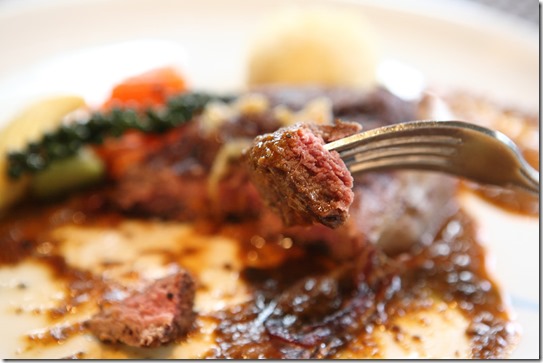
Savoring Scripture
 A few years ago author Eugene Peterson (The Message translation, A Long Obedience in the Same Direction) gave an interview in which he discussed how he learned to read Scripture contemplatively.
A few years ago author Eugene Peterson (The Message translation, A Long Obedience in the Same Direction) gave an interview in which he discussed how he learned to read Scripture contemplatively.
“In high school I was very much involved in poetry. You cannot read a poem quickly. There’s too much going on there. There are rhythms and alliteration. You have to read poetry slow, slow, slow to absorb it all. That’s how I began reading and praying psalms as a student, because I realized they were poems….The first time you read a poem, you usually don’t understand it. You’ve got to read it ten times or more. You’ve got to listen to it. (Emphasis mine)
I wasn’t trained to listen to a text the way Peterson is talking about. I was taught to read for content and comprehension, information and insight, facts and figures.
I can’t even say that I was taught to read poetry any differently. The emphasis was always in trying to determine what they writer was saying.
Peterson is suggesting, however, that a poem is not to be exegeted as much as it is to be experienced.
A user’s manual isn’t experienced. It is read for content and that’s it.
A poem isn’t a user’s manual. No literature is. There is content in all literature, whether poetry or prose, but there is an experiential factor as well. Literature, good literature at least, does something to you.
It’s the difference between eating oatmeal and eating filet mignon.
A few years ago Pam and I got in a phase in which we were eating steel-cut oatmeal for breakfast.
I never savored a bite.
I’d add fruit and nuts to give it some flavor, but as food it was completely utilitarian. I ate it for nutrition and health, and nothing more.
A filet, however, is to be experienced. Grilled to perfection, with a touch of garlic salt and ground pepper, a filet is to be savored.
You don’t rush to finish a filet; you relish each bite. It’s not about nutrition—it’s a sensory experience.
The Bible is not a user’s manual, in spite of some who like to use that analogy. It is literature, much of it great literature, and not just the poetic sections.
There is a content element in Scripture, and there is a time and a place for reading it for content and comprehension, for getting the biblical facts straight. It’s important, for instance, to understand the events that led to the Babylonian Exile.
But if that’s all that we do, we miss the Bible as a living text, as Wisdom and Spirit and Logos and Two-Edged Sword.
Just as savoring a bite requires slowing down, so also does savoring Scripture, and that is probably our biggest obstacle: we are all in too big of a hurry.
And we are noisy.
And we’re too verbal.
And that makes us really, really bad listeners.
When a person really wants to listen, they stop what they are doing, eliminate distracting noises, speak little or not at all, and they devote as much time as it takes.
When we treat Scripture as a user’s manual or a textbook on science and history, we use it for what we can get out of it, but we don’t really savor it.
We don’t really experience it.
We don’t really let it do something to us.
And what’s the point of reading Scripture if it isn’t to change us?
After all, what does it profit a man if he knows that the Babylonians destroyed Jerusalem in 586 B.C. but loses his soul?
Photo by © Can Stock Photo Inc. / piyato
 I am a lifelong student of the Bible, and have been a pastor for over twenty-five years. My desire through this blog is to help people see things in the intersection of Scripture and real life that they might have missed. The careless handling of the Bible is causing a lot of problems in our churches and our culture--and is literally turning people away from the church, and, sometimes, God. I hope to treat Scripture with the respect it deserves, and, even if you don't agree with what I say, give you some insight.
Feel free to leave a comment. I promise to respond to you. All I ask is that you be respectful in your comments.
I am a lifelong student of the Bible, and have been a pastor for over twenty-five years. My desire through this blog is to help people see things in the intersection of Scripture and real life that they might have missed. The careless handling of the Bible is causing a lot of problems in our churches and our culture--and is literally turning people away from the church, and, sometimes, God. I hope to treat Scripture with the respect it deserves, and, even if you don't agree with what I say, give you some insight.
Feel free to leave a comment. I promise to respond to you. All I ask is that you be respectful in your comments. 
Connect with Me